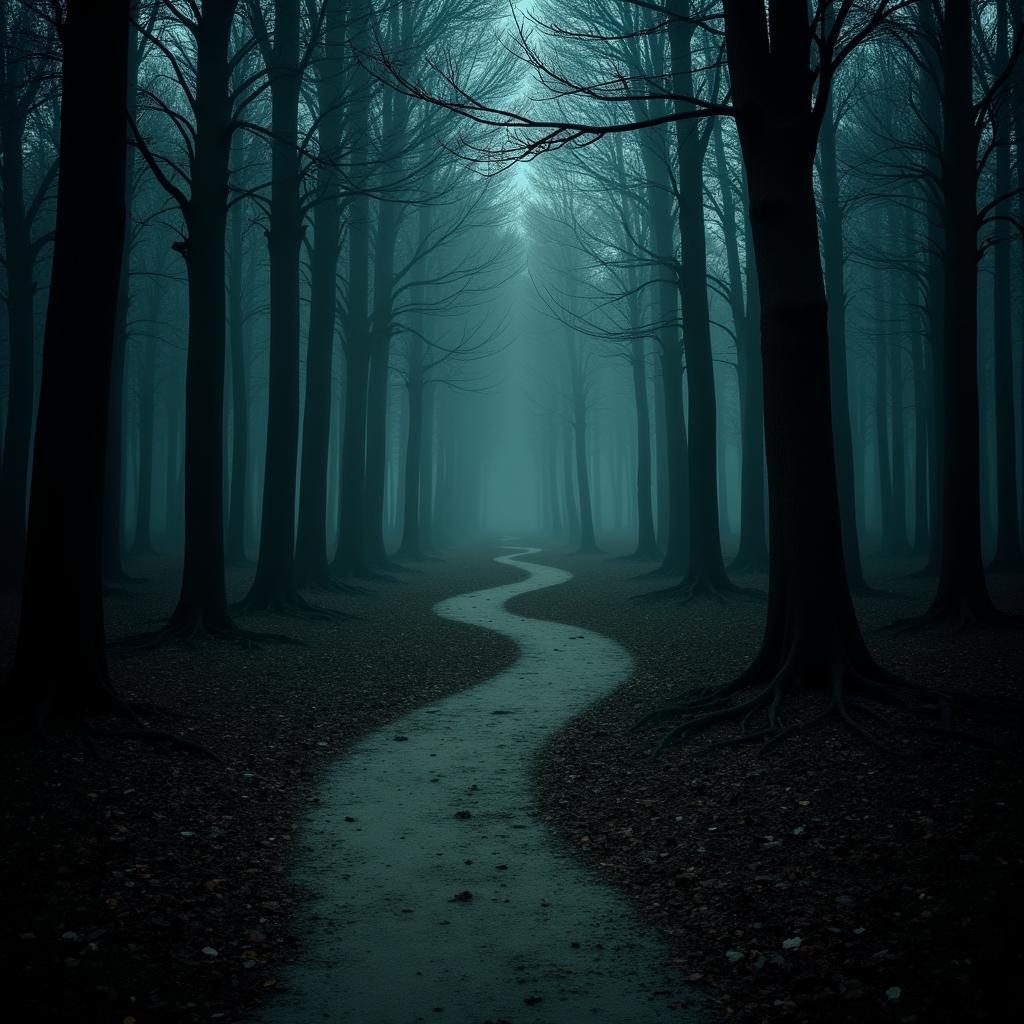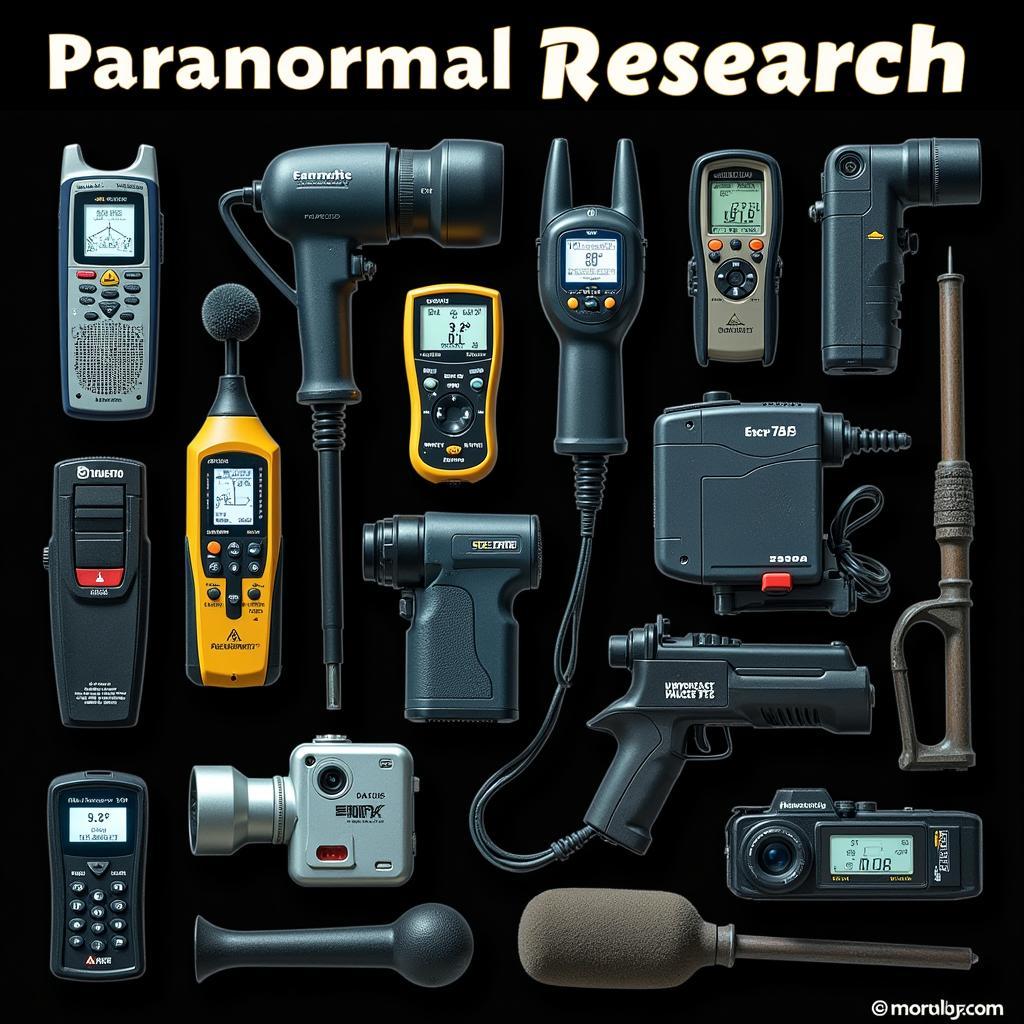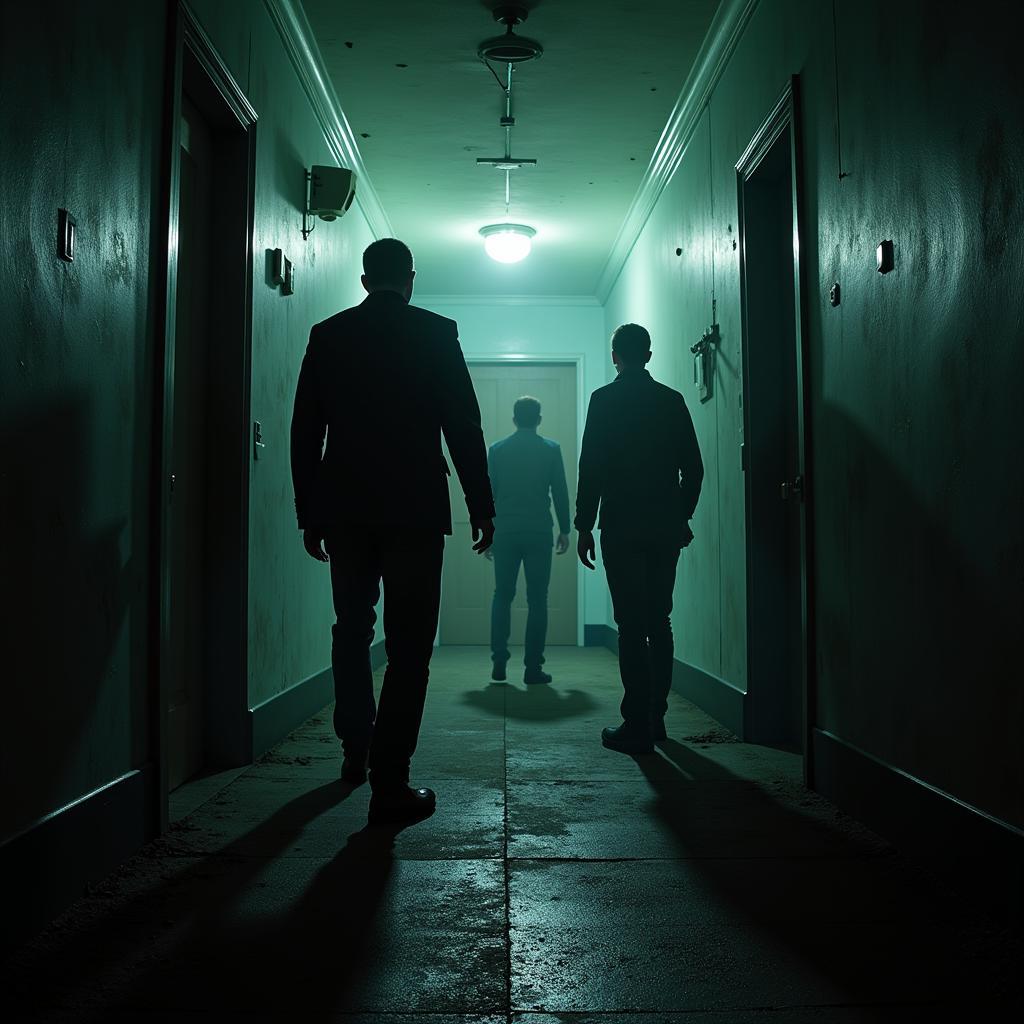Delving into the world of the unexplained often leads researchers down two distinct paths: exploratory and explanatory research. Both approaches aim to shed light on the unknown, but they employ different methodologies and serve distinct purposes in our quest to comprehend paranormal phenomena.
 Comparing Exploratory and Explanatory Research
Comparing Exploratory and Explanatory Research
Uncharted Territory: What is Exploratory Research?
Imagine venturing into a dense forest with no map, compass, or prior knowledge of its secrets. That’s the essence of exploratory research in paranormal investigation. It’s the initial foray into the unknown, an attempt to uncover patterns, generate hypotheses, and gain a preliminary understanding of a phenomenon.
Exploratory research often involves:
- Qualitative data collection: Gathering anecdotal evidence, witness testimonies, and historical accounts of paranormal events.
- Open-ended interviews: Engaging with individuals who have experienced paranormal activity to gain insights into their experiences.
- Observation: Conducting investigations at reportedly haunted locations to observe and document any unusual occurrences.
This approach thrives on flexibility and adaptability, allowing researchers to adjust their methods as new information emerges. It lays the groundwork for more focused investigations by identifying potential areas of interest and framing preliminary questions.
Seeking Answers: The Role of Explanatory Research
While exploratory research explores the “what” of a phenomenon, explanatory research delves into the “why” and “how.” It aims to test hypotheses, establish causal relationships, and provide evidence-based explanations for observed paranormal activity.
Explanatory research often involves:
- Quantitative data analysis: Employing statistical methods to analyze data collected from experiments or observations.
- Controlled experiments: Designing and conducting experiments to isolate variables and test specific hypotheses about paranormal phenomena.
- Instrumentation and measurement: Utilizing scientific equipment to detect and measure potential paranormal activity, such as electromagnetic fields, temperature fluctuations, or changes in air pressure.
This approach emphasizes objectivity, rigor, and the use of scientific methods to validate or refute hypotheses generated during the exploratory phase.
 Tools for Paranormal Investigation
Tools for Paranormal Investigation
Bridging the Gap: Combining Exploratory and Explanatory Approaches
In the realm of paranormal research, exploratory and explanatory approaches are not mutually exclusive. Instead, they often work in tandem, each informing and enriching the other.
- Exploratory research can identify intriguing patterns and generate testable hypotheses that guide explanatory research.
- Explanatory research can either validate or challenge the findings of exploratory research, leading to a more refined understanding of the phenomenon under investigation.
For instance, an initial exploratory investigation might involve interviewing witnesses who claim to have seen a ghostly apparition in a particular location. The researchers might then use this information to design an explanatory experiment, using infrared cameras and EMF meters to try to capture evidence of the apparition and any associated electromagnetic anomalies.
Finding Meaning in the Mystery
Understanding the distinction between exploratory and explanatory research is crucial for navigating the complexities of paranormal investigation.
“The most compelling paranormal research blends the open-mindedness of exploration with the critical lens of scientific inquiry,” notes Dr. Emily Carter, a leading researcher in parapsychology. “By embracing both approaches, we can move beyond mere speculation towards a more nuanced and evidence-based understanding of the unknown.”
While the elusive nature of paranormal phenomena presents unique challenges, a balanced and rigorous approach, incorporating both exploratory and explanatory methodologies, offers the best hope for unraveling the mysteries that lie beyond the veil of our current understanding.
 Team Conducting a Paranormal Investigation
Team Conducting a Paranormal Investigation
Unveiling the Unknown: Frequently Asked Questions
-
What are some examples of paranormal phenomena studied through research? Paranormal research encompasses a wide range of phenomena, including apparitions, extrasensory perception (ESP), psychokinesis, hauntings, and UFO sightings.
-
Is paranormal research considered a legitimate science? While the study of paranormal phenomena is often met with skepticism, there are organizations and researchers dedicated to applying scientific methods to investigate these claims. However, it remains a controversial field with ongoing debates about its validity and the nature of evidence required for proof.
-
What are some of the challenges of conducting paranormal research? Paranormal research faces challenges such as the subjective nature of experiences, the difficulty of replicating phenomena, the lack of standardized measurement tools, and the potential for bias and misinterpretations.
-
How can I get involved in paranormal research? Many local paranormal groups welcome newcomers and offer opportunities to participate in investigations. Additionally, resources like books, documentaries, and online forums can provide further information and connect you with other enthusiasts.
-
What are some ethical considerations in paranormal research? Ethical considerations in paranormal research involve respecting the privacy and beliefs of individuals involved, obtaining informed consent, handling potential evidence responsibly, and avoiding sensationalism or exploitation.
Seeking Answers to the Unexplained?
Do you have more questions about the world of Paranormal Research or need assistance with an investigation? Contact us at 0904826292, email us at research@gmail.com, or visit us at No. 31, Alley 142/7, P. Phú Viên, Bồ Đề, Long Biên, Hà Nội, Việt Nam. Our team of dedicated researchers is available 24/7 to assist you.
Explore further into the mysteries of the paranormal by reading our other articles on…